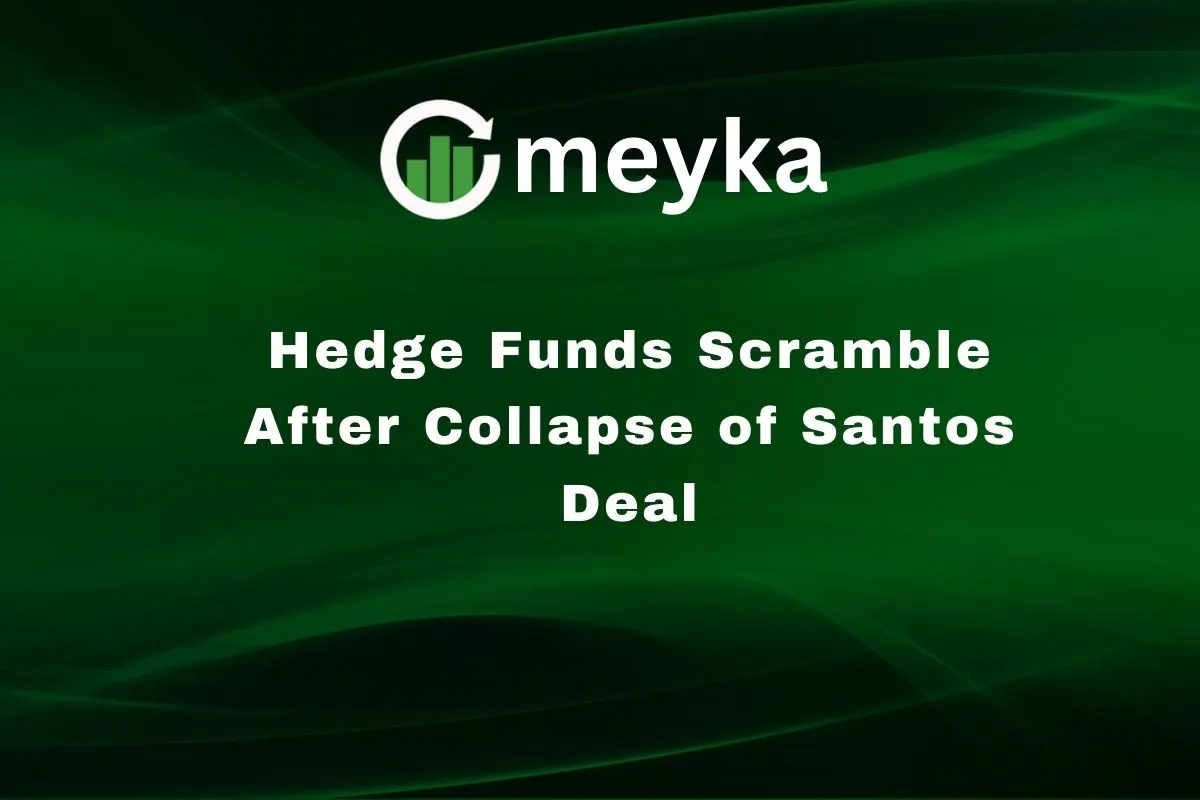Hedge Funds Scramble After Collapse of Santos Deal
The collapse of the Santos deal has sent shockwaves through global markets. Hedge funds that bet big on its success are now scrambling to limit damage. The deal, once seen as a turning point for the energy sector, failed under the weight of regulatory hurdles and shifting market forces.
We now see investors asking hard questions about risk, energy policy, and the future of large oil and gas mergers. This isn’t just about one failed agreement; it’s a signal of how fragile high-stakes deals have become. For hedge funds, the fallout is real, with billions at stake and strategies changing overnight.
As we look closer, the Santos deal collapse is more than a business story. It reflects how financial markets, politics, and energy transition pressures collide. And it shows why staying alert and adaptable matters for everyone, from fund managers to everyday investors.
Background of the Santos Deal
The proposed acquisition aimed to transfer significant Australian and Papua New Guinea oil and gas assets to foreign control, raising concerns about national energy security. The deal was initially proposed in June 2025, with the consortium offering A$8.89 ($5.76 per share). Despite several extensions and a willingness from Santos to finalize the deal at a revised price of $5.626 per share, the consortium ultimately decided not to proceed with a binding offer.
Why the Deal Collapsed
Several factors contributed to the collapse of the Santos deal:
- Regulatory Hurdles: The deal required approvals from multiple regulatory bodies across Australia, Papua New Guinea, and the U.S., leading to concerns about potential delays and complications.
- Political and Labor Opposition: The proposal faced criticism from Australian unions and lacked a major Australian partner, raising concerns about national interest and labor practices.
- Environmental Concerns: A methane leak discovered during due diligence at a Darwin LNG plant added to the uncertainties surrounding the deal.
Immediate Market Impact
Following the withdrawal, Santos’ shares fell by up to 13.6%, wiping billions off its market value. Investment bank Jarden downgraded Santos from “overweight” to “underweight” and cut its 12-month price target from A$8.40 to A$7.05, cautioning that shareholders would likely question the company’s negotiation strategy.
Hedge Funds Scramble to Recover
Hedge funds that had bet on the success of the Santos deal are now reassessing their positions. Some funds are exiting energy investments, while others are doubling down, hoping to capitalize on the company’s future growth prospects. The collapse underscores the risks associated with large-scale energy investments and the challenges of navigating complex regulatory environments.
Broader Implications for Energy and M&A Deals
The Santos deal’s collapse has broader implications for the energy sector:
- Increased Scrutiny of Foreign Investments: The failed deal may lead to heightened scrutiny of foreign investments in Australia’s energy sector, with regulators and policymakers reassessing the criteria for approving such transactions.
- Shift Towards Domestic Partnerships: The lack of an Australian partner in the consortium highlighted the importance of local involvement in major energy deals, potentially influencing future merger and acquisition strategies.
- Focus on ESG Factors: Environmental, social, and governance (ESG) considerations are becoming increasingly important in energy investments, with stakeholders demanding greater accountability and transparency.
Global Investor Sentiment and Market Outlook
The collapse of the Santos deal has shaken investor confidence in the energy sector. While some investors view the situation as an opportunity to acquire undervalued assets, others are exercising caution, wary of the complexities involved in large-scale energy transactions. The incident serves as a reminder of the volatile nature of the energy market and the importance of thorough due diligence.
Conclusion
The collapse of the Santos deal underscores the intricate interplay between market dynamics, regulatory environments, and investor expectations. For hedge funds and other investors, the incident highlights the importance of adaptability and strategic foresight in navigating the complexities of the global energy market. As the industry moves forward, stakeholders must remain vigilant, balancing ambition with caution to ensure sustainable growth and value creation.
FAQS:
If a hedge fund collapses, investors can lose money fast. Markets may become unstable, and other funds may face pressure. Confidence in investments can drop sharply.
Hedge funds face risks like market swings, poor investment choices, high fees, and regulation. Unexpected events, like economic shocks, can make it hard to earn consistent profits.
After a hedge fund collapse, investors should review portfolios, reduce risky investments, and diversify into safer assets. Consulting financial advisors helps to plan for stable returns.
Disclaimer:
This content is for informational purposes only and is not financial advice. Always conduct your research.






